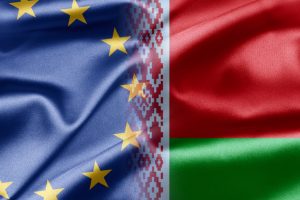The institutional capacities of the parliament in the process of harmonizing the national legislation with the EU legislation will be strengthened within a project funded by the EU, the parliament’s communication and public relations department has reported. The Twinning project for Moldova “Strengthening capacities of the Moldovan parliament in harmonizing national legislation with EU law” is implemented by the Chamber of Deputies of the Czech parliament, National Council of Slovak Republic and the National Assembly of Hungary, in cooperation with the Moldovan parliament. The budget of the project is 1.5 million euros and the implementation period is 2017-2019.
The parliament hosted the official launching ceremony of the Twinning project yesterday. The participants in the event were welcomed by Parliament Speaker Andrian Candu, EU Ambassador to Moldova Peter Michalko, Vice President of the National Assembly of Hungary Csaba Hende, Chairman of the Committee on European Affairs on the National Council of the Slovak Republic Ľuboš Blaha, Czech Ambassador to Moldova Zdeněk Krejčí and head of the foreign policy and European integration of the Moldovan parliament Violeta Ivanov.
“To achieve the priority goal of European integration, Moldova needs strong institutions, because the task is not easy. The Visegrad Group is a country with hundreds of years parliamentarism experience and has gone through periods similar to Moldova: socialism and European integration process”, Candu said. “We are pleased to launch this project with our partners in the member states. With the support of the EU, they will share their valuable experience and skills in order to contribute to strengthening the institutional capacities of the parliament in the field of legislative procedures”, EU Ambassador to Moldova Peter Michalko said.
The project’s goal is to facilitate the implementation of the Association Agreement between EU and Moldova. It is meant to optimize the role and responsibilities of parliament, its working bodies and relevant administrative structures to ensure a robust institutional framework for the effective implementation of legislative powers, especially in the process of harmonizing legislation as a prerequisite for the implementation of the Association Agreement. At the same time, the project will help improve the exchange of information between the parliament and government in the context of the process of harmonizing legislation.
60 experts from the Czech Republic, Slovakia, Hungary, as well as from Poland, Latvia, France and Belgium will contribute to the implementation of over 65 different activities within the four components, focused on different goals: evaluation, roundtables, development of guides, recommendations and consultation document, a study, a roadmap, training activities (seminars, workshops, evaluations etc) and study visits to the EU member states.




